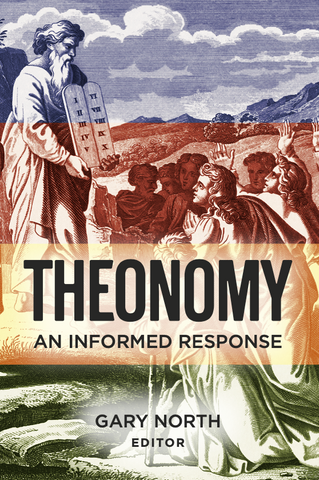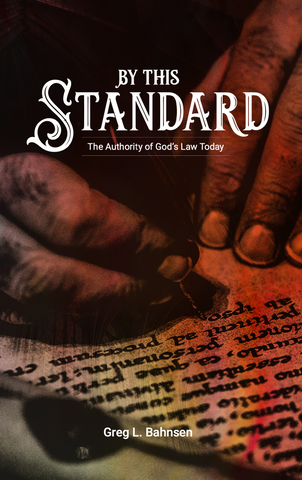I saw the following on a Facebook post indirectly aimed at me. “It frustrates me when people insist that the New Covenant has Torah requirements, i.e., that we are still under the law. Paul pitted law against grace. Grace is not the adapter that connects us to the law; it actually frees us from that slavemaster. We don’t live by an external force like the law; rather, we live by an internal nature—the law written on our hearts and minds—that compels us to do good works.”
The “law” is not an external force. It is an external moral standard of righteousness. Laws prohibiting murder and theft are found in the OT as well as the NT. Paul directly appeals to the Ten Commandments found in the “Torah” when it comes to loving our neighbor.
Owe nothing to anyone except to love one another; for the one who loves his neighbor has fulfilled the Law. For this, “YOU SHALL NOT COMMIT ADULTERY, YOU SHALL NOT MURDER, YOU SHALL NOT STEAL, YOU SHALL NOT COVET,” and if there is any other commandment, it is summed up in this saying, “YOU SHALL LOVE YOUR NEIGHBOR AS YOURSELF.” Love does no wrong to a neighbor; therefore love is the fulfillment of the Law (Rom. 13:9).
You love someone when you do not violate these and other moral standards. The command to “love” does not stand alone. There are objective moral standards that define love. Even the command to love your neighbor is found in the laws given to Moses for the people of Israel (Lev. 19:18) and for the nations:
“See, I have taught you statutes and judgments just as the LORD my God commanded me, that you are to do these things in the land where you are entering to take possession of it. So keep and do them, for that is your wisdom and your understanding in the sight of the peoples who will hear all these statutes and say, ‘Surely this great nation is a wise and understanding people.’ For what great nation is there that has a god so near to it as is the LORD our God whenever we call on Him? Or what great nation is there that has statutes and judgments as righteous as this whole Law which I am setting before you today?” (Deut. 4:5-8).
Are we to believe that these moral standards disappeared with the coming of the NC, and they no longer have any application to the nations? “Walking by the Spirit” (Gal. 5:16) necessitates walking by an objective standard. Does Paul contract himself when he writes, “But if you are led by the Spirit, you are not under the Law” (v. 18)? Look at what immediately follows:
Now the deeds of the flesh are evident, which are: sexual immorality, impurity, indecent behavior, idolatry, witchcraft, hostilities, strife, jealousy, outbursts of anger, selfish ambition, dissensions, factions, envy, drunkenness, carousing, and things like these, of which I forewarn you, just as I have forewarned you, that those who practice such things will not inherit the kingdom of God (vv. 19-21).
Paul lists characteristics of an objective moral law. There is no mention of circumcision, food laws, or blood sacrifices.

Theonomy: An Informed Response
Christendom is a civilization—the kingdom of God in history—that is governed in every area, every nook and cranny, by God: a society whose lawfully anointed rulers govern in terms of God’s revealed law. In this view, God is not in retirement or on vacation; He is a King who has delegated to His officers the authority to exercise command. There are three covenantal institutions: family, church, and state. To deny that God’s covenant law applies to civil government in New Testament times is necessarily to abandon the ideal of Christendom.
Buy NowThe apostle Paul scolds the Corinthians for tolerating a sin listed three times in the Mosaic legislation (1 Cor. 5:1-3; Lev. 18:8; Deut. 22:30; 27:20). This law looks like a “Torah requirement.” How dare Paul bring the Corinthians under a “slavemaster.”
In 1 Corinthians 9:9 and 1 Timothy 5:18, Paul quotes and applies an obscure law from Deuteronomy 25:4 in support of financial assistance of ministers of the gospel: “You shall not muzzle an ox when it is treading out the grain.”
In 1 Timothy 5:17 Paul writes, “Let the elders who rule well be considered worthy of double honor, especially those who labor in preaching and teaching.” In v. 18 Paul grounds this teaching with two quotations: “You shall not muzzle an ox when it treads out the grain” (Deut. 25:4) and “The laborer deserves his wages” (Luke 10:7; cf. Matt. 10:10). Paul’s point is that pastor-elders should not be taken for granted or taken advantage of, but rather should be adequately compensated for their gospel labors. (Source)
James mentions “fulfilling the royal law” (2:8) by an appeal to Leviticus 19:18. He adds the prohibition against adultery and murder (2:11) by referencing the Mosaic legislation (Ex. 20:13-14; Deut. 5:18).
In the first chapter of 1 Timothy, we find the following:
Some people have strayed from these things and have turned aside to fruitless discussion, wanting to be teachers of the Law, even though they do not understand either what they are saying or the matters about which they make confident assertions. But we know that the Law is good, if one uses it lawfully, realizing the fact that law is not made for a righteous person but for those who are lawless and rebellious, for the ungodly and sinners, for the unholy and worldly, for those who kill their fathers or mothers, for murderers, for the sexually immoral, homosexuals, slave traders, liars, perjurers, and whatever else is contrary to sound teaching, according to the glorious gospel of the blessed God, with which I have been entrusted (vv. 6-11).
Could the Bible be any clearer? Note that the lawful use of the law is not in opposition of the gospel. The law is a moral standard that helps us understand that we need the gospel.
The FB poster states that we are not under law but then claims that we live by “the law written on our hearts and minds.” Isn’t this pitting, according to his logic, “law against grace”? He’s still advocating for some objective law that is external to us. The Bible does put grace over law. They work together. “This is the covenant that I will make with them after those days, says the LORD: I will put My laws upon their hearts, and write them on their mind” (Heb. 10:16). What is this law? Is it objective? Do we all have it? How do we know we are following this “law written on our hearts and minds”? Do these heart/mind laws have any correspondence to the laws found in the law given to Moses? The author of Hebrews quotes Jeremiah 31:33. What were these laws? How would those who first read Jeremiah have understood the meaning of “My laws,” that is, God’s laws? The laws written on our heart and mind are not new laws. When Christians make claims that we are no longer under law, they always create a new version of what it means to be under law. Law is an inescapable concept.
The FB poster goes on:
Gary DeMar sometimes makes my skin crawl when he talks about the law and how we are still under it. Not only does he believe Christians should live by it (not really, because they do not obey it, given that the animal sacrifice requirement are ignored. They cherry pick the law that they say we must follow).
There is no cherry picking when it comes to laws regulating circumcision and animal sacrifices. The NT explains why Christians are not required to sacrifice animals or be circumcised or have the need for human priests to be our intermediaries or the necessity for a physical temple.
But when Christ appeared as a high priest of the good things having come, He entered through the greater and more perfect tabernacle, not made by hands, that is, not of this creation; and not through the blood of goats and calves, but through His own blood, He entered the holy place once for all time, having obtained eternal redemption. For if the blood of goats and bulls, and the ashes of a heifer sprinkling those who have been defiled, sanctify for the cleansing of the flesh, how much more will the blood of Christ, who through the eternal Spirit offered Himself without blemish to God, cleanse your conscience from dead works to serve the living God?
How many times do I and others have to explain these points? The use of the word “law” (nomos) in the NT does not always mean the same thing. Context matters. The following is an explanation from Greg L. Bahnsen, one that he has made numerous times because people don’t read or refuse to understand because they have a theological ax to grind. They are counting on other people not know how to navigate the distinctions and applications of the law:
Dispensationalists [and the above writer] often confuse themselves and equivocate regarding the expression “live under the law,” sometimes taking it to mean living under the terms of the Mosaic covenantal administration (called “the law”), but at other times taking it to mean living according to the moral standards revealed by Moses (also called “the law”). It is therefore easy to slide from an obvious truth (viz., that Christians are not under the Old Testament administration of God’s covenant) into an obvious falsehood (viz., that Christians have moral standards different from the Old Testament’s). Scripture does not present the law-covenant as fundamentally opposed to the grace of the New Covenant, thus exposing a false antithesis at the heart of dispensational thinking.[1]
Anyone who does not know these points of clarification should not be writing on the topic. In addition to Greg Bahnsen’s No Other Standard, I suggest his By This Standard: The Authority of God’s Law Today.

By This Standard
Millions of Christians, sadly, have not recognized the continuing authority of God's law or its many applications to modern society. They have thereby reaped the whirlwind of cultural and intellectual impotence. They implicitly denied the power of the death and resurrection of Christ. They have served as footstools for the enemies of God. But humanism's free ride is coming to an end. This book serves as an introduction to this woefully neglected topic.
Buy NowFor more than 30 years the arguments raised by the above writer have been dealt with great in detail. Greg Bahnsen offers another detailed answer in their book House Divided: The Break-Up of Dispensational Theology published in 1989. The above writer might claim that he’s not a dispensationalist. It doesn’t matter. He argues like one. See Bahnsen’s chapter “The Failure of Accurate Portrayal.”
There are additional issues raised by this FB poster that I’ll deal with at another time, probably in a podcast.
[1]Greg L. Bahnsen, No Other Standard: Theonomy and Its Critics (Powder Springs, GA: American Vision, [1991] 2023), 75.

